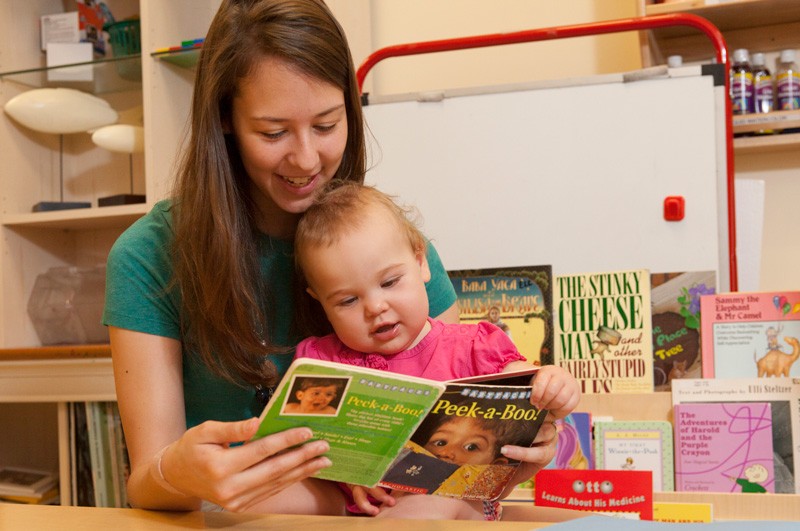Reading to Children

In the eyes of a child who is learning how to read, touchscreen tablets and “smart” technology are no substitute for a living, breathing adult. At least, that’s according to new research by University of Delaware doctoral student Daniela Avelar.
The cognitive benefits a child experiences when reading with an adult are well known, but Avelar’s research indicates that there are emotional and physiological benefits as well.
When reading with a child, the adult assumes the roles of storyteller and teacher, both guiding the child through a narrative while also answering questions when the child becomes inquisitive or confused. A tablet may be “smart” enough to mimic some of the actions of the adult, but it is not necessarily an adequate replacement.
Avelar, who is pursuing a doctoral degree in education with a specialization in learning sciences, tracked the emotional responses of 40 four-year-old children during three reading scenarios: co-reading a physical book with their mothers, co-reading an e-book with their mothers, and listening to an e-book independently.



